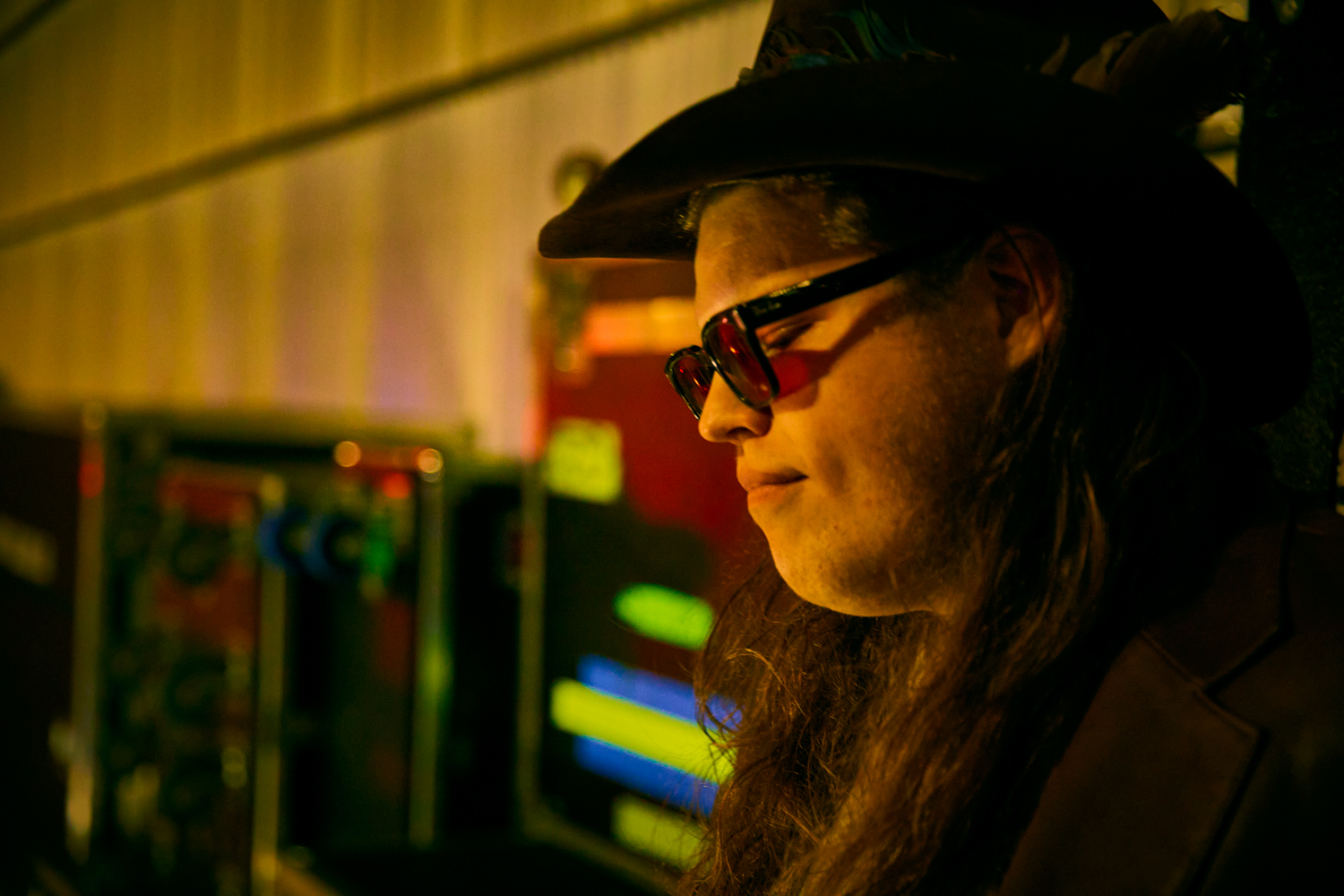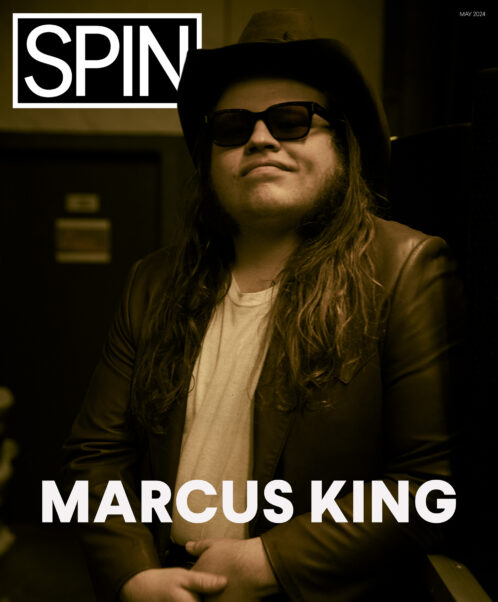What might have seemed like a giant red flag didn’t actually send Briley Hussey running in the other direction. Reader, she married him. “She recognized in me the yearning and the need for some guidance and some light in my life,” he says. For that reason, Hussey kept that voicemail on her phone, on some level understanding that it represented both how low her new husband had once sunk and how high he had climbed since. When the newlyweds traveled to Tuscany for a vacation and recording session, Hussey suggested King sample the voicemail in a new song called “Cadillac,” which closes his harrowing, hopeful new album, Mood Swings.
“My wife has this innate ability to say things she thinks are important,” says King. “She had the idea of putting the voicemail at the end of the song. She had already sung on it, and her voice was exactly what the track needed. I have this higher voice, and I was singing falsetto on the song, and Briley’s voice has this really deep, rich texture to it. They blended so well.” But it was that voicemail—slurred and garbled, yet excited about this new person in his life—that cracked open an otherwise overwhelmingly dark song and let a little light in.
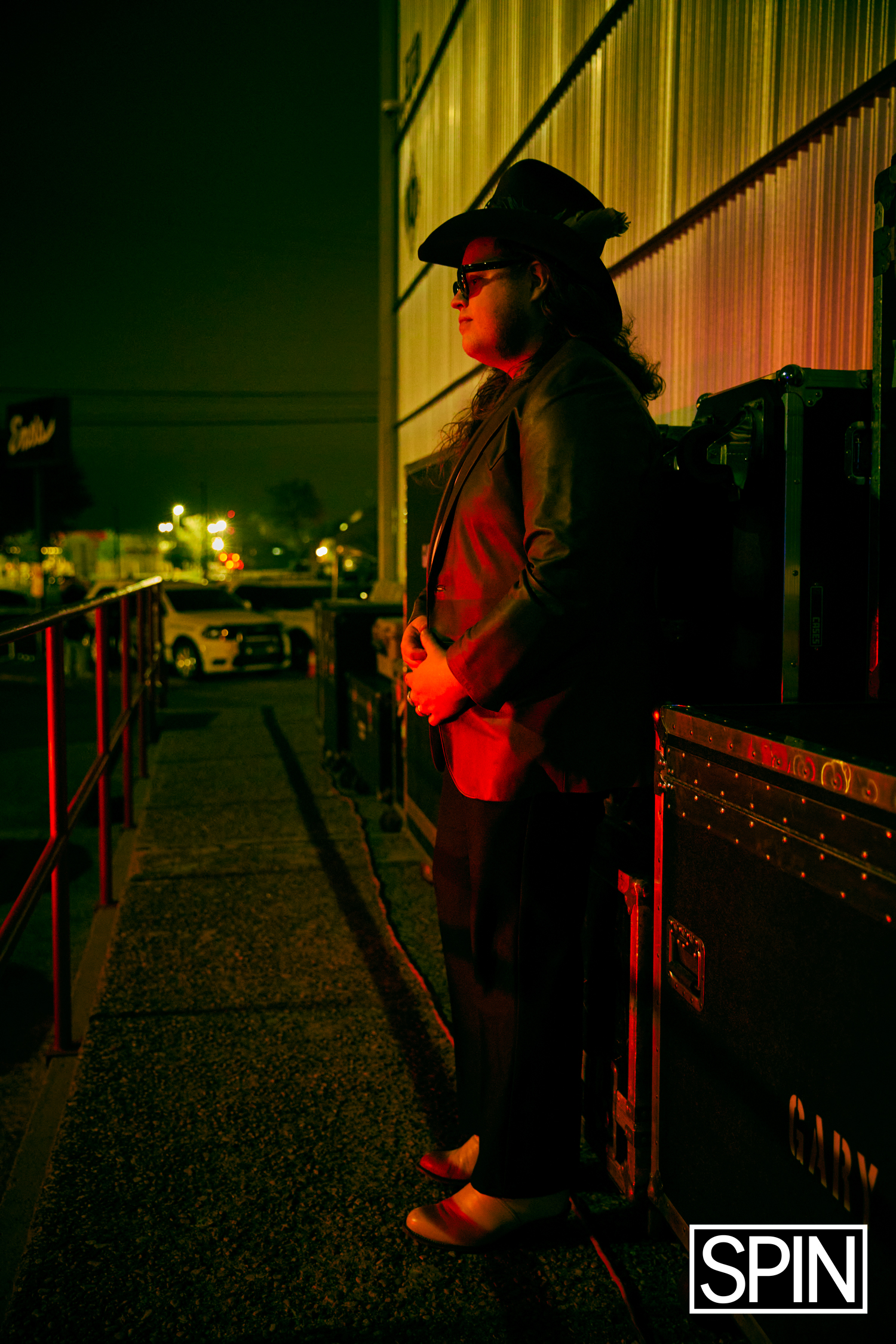
With its stark acoustic strums and skittering synth flourishes, “Cadillac” opens as an ode to a car, with King extolling its virtues (plush seats, 8-track stereo, reliability) the way country singers serenade their muddied trucks. Gradually, the song reveals itself as a suicide note: King will leave the car running in the garage, turning his Caddy into a coffin. “Should have known I’d go alone, but that’s for the best,” he sings. “So now I wait in my V8 for my final rest.” Without that sample, “Cadillac” would be too dark, too final. With it, the song offers a reason to turn the car off and open the garage door.
King had been working on the song for a few years by then, never quite sure how it would turn out because he wasn’t sure how he would turn out. “It was just a poem describing what my final day would have been like. That’s exactly what the song is. I wasn’t able to write it in the moment. It took me getting away from that place to speak openly about it—and that took meeting Briley and getting my shit together. So having that voicemail at the end of the song was really poetic to me. It’s a reminder that my life has turned out pretty nice.”
King was born into the blues. The son of a popular South Carolina player named Marvin King, Marcus picked up the guitar at an early age and mastered it quickly, as though fulfilling some hero’s destiny. First with the Marcus King Band and later as a solo artist, he developed a reputation as an imaginative player and a blazing performer. But Mood Swings is a different kind of album for him—a milestone in an already accomplished career. For one thing, he leaves behind the swampy southern rock of previous albums for a lower-key soul sound, more Hi Records than Capricorn Studios. For another, he writes straightforwardly about confusion, alienation, isolation, depression, and a self-loathing so intense it cuts through every moment of his life. “I don’t deserve to live without pain,” he confesses on “Fuck My Life Up Again.” “Love is bipolar / It always gets colder as soon as you warm up to me,” he observes on “Bipolar Love.” He has what sounds like a medically diagnosable form of the blues.
These are themes and ideas he’s explored on previous albums—including 2020’s El Dorado and 2022’s Young Blood—but never as openly as he does on Mood Swings. “I’ve always sung about these feelings, but with a lot more metaphor and a lot less directness. I felt like stripping away the metaphors and being open and vulnerable and just feeling everything. Communication is everything—within a marriage, within a friendship. You have to be direct, and you can’t expect people to know what you mean without telling them what you mean. That’s what this record did for me.”
These days King rarely stays up till five in the morning. He leads a healthier, much more regimented life, finding stability in routine. “First thing in the morning, I grab a pen and a piece of paper and just write. “I like to practice stream-of-conscious writing. Sometimes I use a dream I just had as inspiration, then I just start writing and see what happens. I don’t get to do it every day, but it helps to do it when I can.” He sees Mood Swings as a breakthrough—his debut as a real songwriter who puts all of himself in the song, who sees no feeling as off limits, however dark it might be. “Rick really wanted me to push deeper and deeper and only say what needed to be said.”
The “Rick” he’s referring to is Rick Rubin, the producer with the legendary beard and the even more legendary résumé that includes Run DMC, Jay Z, Red Hot Chili Peppers, Adele, Johnny Cash, the Avett Brothers, and so many others. “If you’ve had even a fair awareness of pop culture in the last 30 or 40 years, you know who Rick Rubin is. I’ve always been in awe of him—his presence, his energy, his ability to be unapologetically himself. He’s got the same sensibility about music that echoes the advice of Colonel Bruce Hampton, who’s one of my heroes. We can’t take ourselves too seriously.”
King credits Rubin with challenging him to hone in on the deepest truths, to make himself a little uncomfortable in his own songs. In doing so, he might have helped to save the singer-songwriter’s life, if only by introducing some discipline and structure into his creative process. “I maintain that he’s an ambassador to the human race on all things music. He takes a real holistic approach and listens very deeply. Then he gives you your notes and you get back to work.”
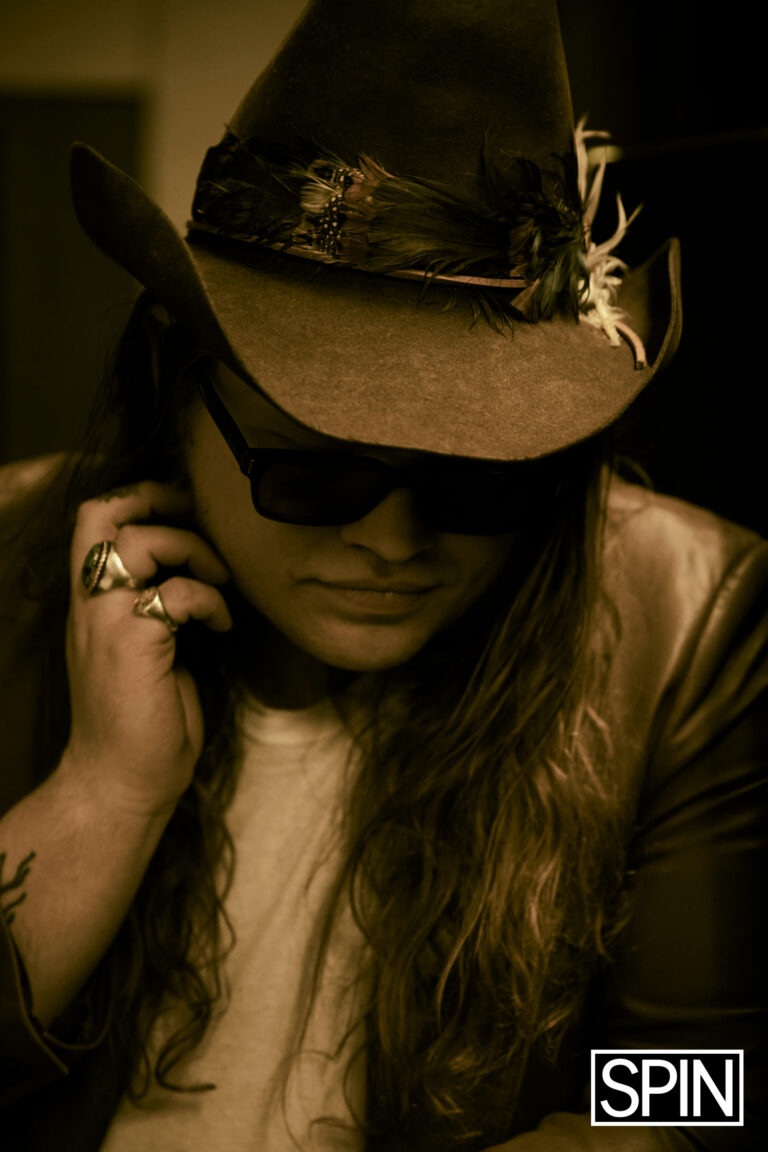
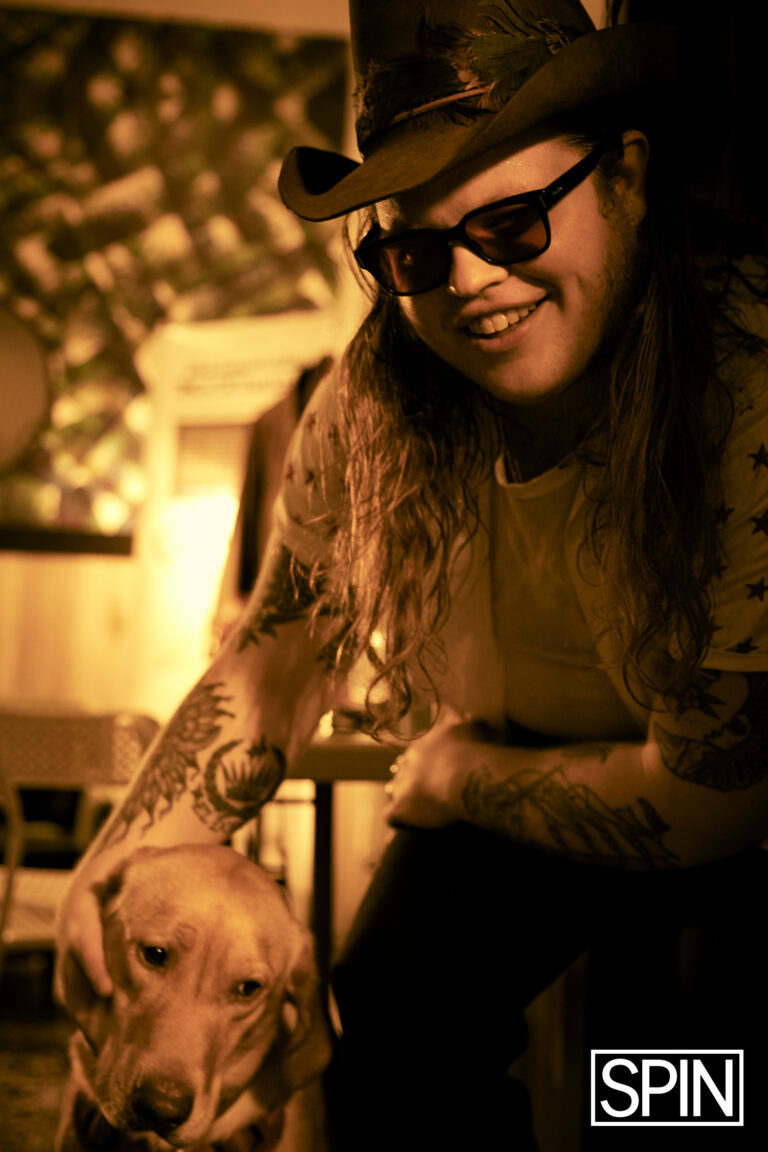
The two met in 2019, shortly after King made his debut at the Grand Ole Opry. Clips of him tearing into “Goodbye, Carolina” went viral, eventually making their way to Rubin. “I remember my tour manager came up to me when we were in New York and said, ‘Rick Rubin’s going to call you today.’ I told him to get the fuck outta here. But he did call me, and we spoke at length about everything under the sun, mental health being one of them. Instead of being a shortcoming or something I should look at as a negative, Rick suggested I think of it as a writing partner. That’s when I really started writing this album. In the following months I wrote ‘Mood Swings,’ ‘Bipolar Love,’ and ‘Soul It Screams.’”
King describes “Bipolar Love” as a breakthrough, and it’s the only song on Mood Swings to use the clinical language of therapy. “When I played the demo for Rick, he put his hands over his head triumphantly. He loved what the song said and was really excited about what we could accomplish. When you’re working with an artist like me who has, for lack of a better word, a throwback sound—somebody who’s using the resources that would have been available to anybody in the ‘60s and ‘70s—you want to find a modern component, whether that’s instrumental or whatever, to balance it out. In my case, he was very excited that the modern component was the lyrical content. It was speaking very openly about my mental health.”
Opening up initially only complicated his life. King’s new songs took a brutally honest look at his relationship at the time, which was already rocky, and allowed him finally to put words to certain emotions. He admits it blindsided his longtime girlfriend: “It was hard for her to hear the demos of those songs, because that was the only way I knew how to communicate my feelings at the time.” King took it hard when they broke up, sliding deeper into addiction and depression. He stopped writing for a full year, which scared him. Would the muse return, or was he dried up?
At Rubin’s invitation, King moved out to Malibu, to the producer’s idyllic studio/compound called Shangri-La. Freed from distraction and with a little distance on his heartache, he wrote every day, sometimes on guitar and sometimes on piano, whichever inspired him. He recorded nothing beyond a few casual demos. “I learned that writing every day allows you to capture the moment when it comes. You’re ready for it. It was an exercise Rick put me through, just to unlearn the bad habits I’d picked up here in Nashville. It was about forgetting some of the mechanics of songwriting and figuring out how to write for yourself. It’s about how to write something true.” He estimates he wrote 50 or 60 songs during that period, but only one of them made the album: “This Far Gone,” a song about… leaving a voicemail for a distant lover. “You can tell that I haven’t changed, overthinking everything.”

His West Coast sojourn taught him to push himself: to dig deeper and to excavate anything that might distract from the truth of the song. “That’s how we approached the whole album. We were stripping everything away. Can these songs stand alone with just a guitar and a vocal? Can you strip it further back? Can the song stand alone as words on the page? Can you read them and have them be just as impactful? We wanted everything to have an even stronger foundation than anything I’ve ever done.”
“Do another take, but sing like you’re sending the demo to Ray Charles.” That was Rubin’s advice after they had done too way many takes of “Me or Tennessee.” They’d been tinkering with it for a while, trying to get the tone just right, but despite some deft performances, it just wasn’t working. King’s first response was confusion: “I thought it was weird, but we all locked into it right away. We got it in the next take.” It was a turning point in the Mood Swings sessions, when King realized that getting each note perfect wasn’t the point. “I was so interested in getting it right—making sure there were no flat notes or cracks in my voice—but he was after the vulnerability of it. It needed some imperfections. He was trying to capture the real moment.”
To do so, Rubin never let King get entirely comfortable in the studio. When it came time to track a delicate, determined ballad called “Delilah,” Rubin sat him down at a piano and then burdened him with the history of the instrument: “It was the piano that Adele wrote ‘Hello’ on! I really wish he hadn’t told me that. I’m playing this piano, wondering if I can ever measure up to it, and on the other side of the glass is Cory Henry, one of the best organ players in the world. I was sweating, but I think you can feel that on the track.” They did several takes, with King growing more self-assured and assertive every time, but confidence is not what the song needed. “That first take was the one we kept. Rick knew the track needed me to be scared and nervous.”
Stripping back his songwriting also meant stripping back King’s sound. On previous albums he came across like a modern-day guitar hero, a player who combined expert precision with effortless expression, technique with taste. On Mood Swings, however, the guitar becomes just another voice, another instrument in the mix; it’s not that there’s less of it, and there are some inventive solos, especially the multi-tracked interlude on “Delilah,” but he is using it differently. “We wanted the guitar to come later. We wanted to allow it to be a garnish.”

King has a complicated relationship with the instrument. “It can be transcendental. I can become a vessel and just let the music flow through me. Since I was a kid, it was the one thing I could always turn to. Onstage it’s like it opens a door for me to go into the realm of the song and maybe discover something new. And sometimes it doesn’t. Sometimes I can’t quite reach that place. It’s the same as when you’re meditating and you keep getting distracted and you can’t reach that place you’re trying to get to.” But is he too good? Is he so proficient on the instrument that his playing obscures rather than reveals the truth in a song? “On guitar I can hide behind my knowledge of the instrument, because I’m so technically correct that I don’t immerse myself fully in the moment. I might not be fully present.”
Mood Swings emphasizes the things King does less well, in particular singing and playing piano. It not only forced him to find new modes of expression but kept him anchored in the present moment, however dark or uncomfortable it might be. “How can I fully describe what I’m feeling in this moment and just let people in? It’s a very vulnerable place, which can be scary. But that vulnerability makes me feel weirdly confident in this record. We made every effort possible to make sure it was at least honest. There’s nothing false about the work.”
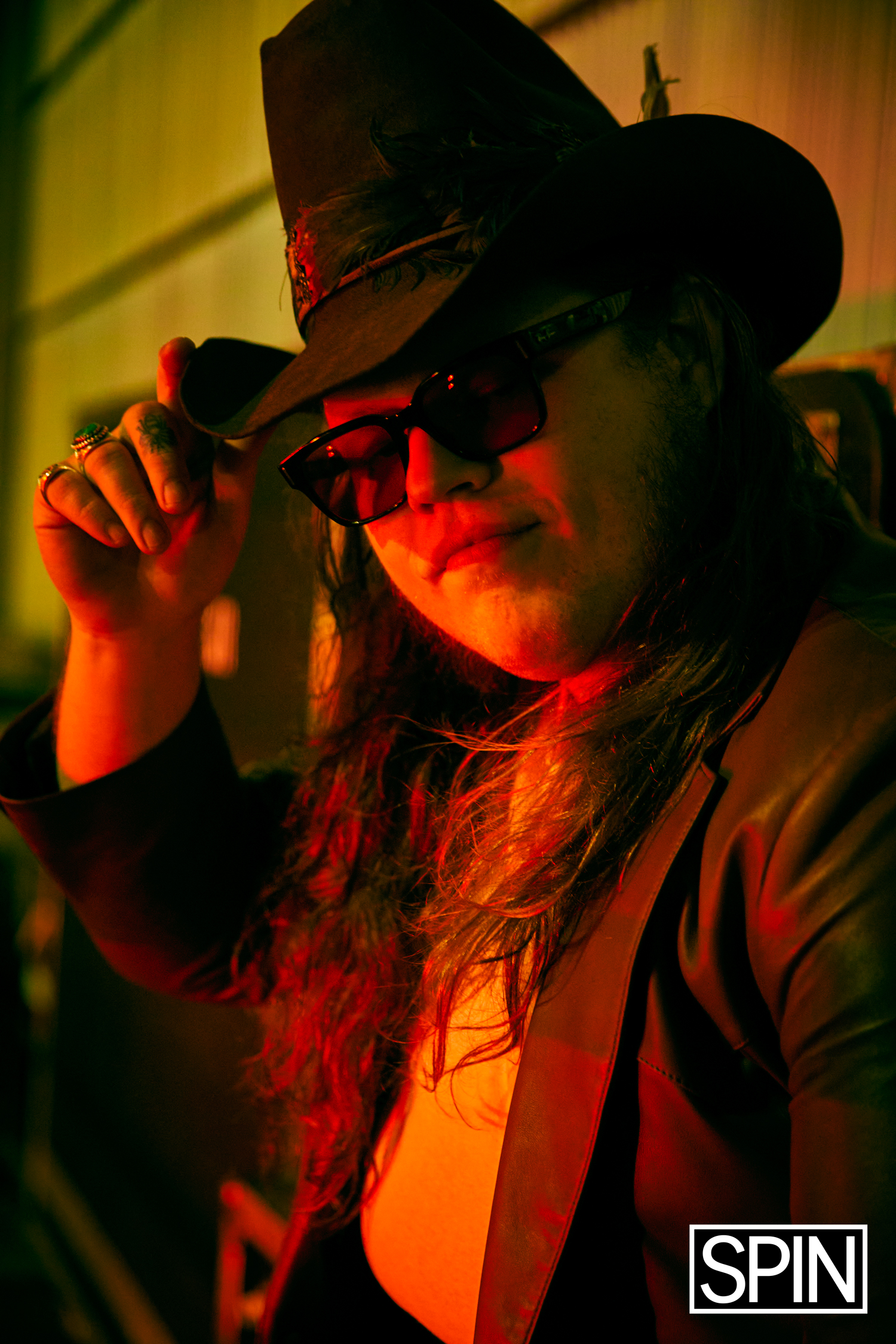
Now that he’s put the songs down on tape and now that he’s released the album to the public, King has bound himself to these songs. He has sentenced himself to play them night after night, to revisit those rock-bottom moments and in some cases relive those experiences. That, he says, is just part of the life of the song, which isn’t so scary now that he has the tools to better manage his mental health.
“As Rick showed me, the artist is never done with the song. There just happens to be this moment when it’s ready to be heard by the public. I feel like I have a much truer and richer relationship with music now, and I think it’s important to destigmatize mental illness. It’s been cathartic for me, and I’m trying to find ways to make it cathartic for other people. This record has shown me that my purpose here is a lot deeper than just entertaining people.”

